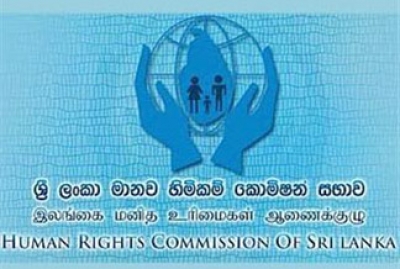
Constitutional means needed for prudent fund allocations
Human Rights Commissioner Ambika Satkunanathan calls for the inclusion of specific socio-economic rights such as health, education and livelihood in the proposed new Constitution to enable the judicial intervention to guarantee required allocation of available resources.
Satkunanathan stressed that as the misuse of state sector resources severely impacted on socio-economic rights, the public had sought the enactment of necessary legislation. The Lal Wijenayake Committee had received a spate of representations calling for enactment of socio-econmic rights in the proposed Constitution, she said.
Satkunanathan was on news line hosted by Faraz Shauketaly on TV 1 yesterday. The official dealt with several contentious issues on behalf of the five-member Human Rights Commission of Sri Lanka (HRCSL). Headed by Dr. Deepika Udagama, the independent commission included Hamid Ghazali Hussian, Saliya Pieris and Dr. Upananda Vidanapathirana, in addition to Ms. Satkunanathan.
Asked for HRCSL stand on front-page report of The Island in its June 19edition as regards submissions made before the Supreme Court regarding the heavy loss of revenue to the state due to members of parliament being issued duty free vehicle permits, Ms Satkunanathan expressed confidence that the ongoing constitutional making process could lead to judicial remedy. The Wijenayake Committee had revealed heavy support for inclusion of socio-economic rights in the proposed Constitution, the official said. Those who had been opposed to the move were of the opinion the cost of inclusion of socio-economic rights in new Constitution would be unbearable, she said.
Asserting that socio-economic rights are as equally important as human rights, Ms. Satkunanathan emphasized the indivisibility of rights and inter-dependance of rights. The official said that civil and political rights largely comprised right to vote, right not to be tortured, right to a fair trial and right not to be arbitrarily arrested. Socio-economic rights consisted of health, education and livelihood, Ms. Satkunanathan said, adding that those rights shouldn’t be under any circumstances looked at separately because they were inter-dependent and they also impacted on each other.
Having dismissed interviewer’s assertion that judges intervention in the right of the state to allocate resources meant infringement of the sovereignty of parliament, Ms. Satkunanathan pointed out that judges interpret the law. “That is their duty to interpret legal norms,” Ms. Satkunanathan said, adding that judges interpreted legal norms in respect of socio-economic rights. Ms. Satkunanathan pushed for similar laws here for the benefit of the people deprived of their rights for want of adequate legal remedies.
The HRCSL spokesperson said that socio-economic rights should be gradually achieved. Underscoring the pivotal importance of providing maximum available resources to address socio-economic issues, Ms. Satkunanathan said that progressive realization of socio-economic rights didn’t mean providing public requirement immediately. The official said that the ideal situation would be for the judiciary receiving right through constitutional means to review state policy in respect of housing or any other socio-economic issue.
Asked whether HRCSL accepted that waste, corruption and irregularities deprived the state of required funds to provide even the basic facilities to those struggling to make ends meet, Ms. Satkunanathan explained the circumstances under which the judiciary could intervene to ensure what she called responsible allocation of available resources. Had the proposals in respect of socio-economic rights were included in the proposed Constitution, courts could compare and rule on funds allocated to health and education with that of some other project, Ms. Satkunanathan explained.
Responding to TV1 query regarding the delay on the part of successive governments in providing permanent housing to those who had lost their homes during the war, Ms. Satkunanathan said that their requirement couldn’t be compared with the needs of people denied basic socio-economic rights. The official stressed the need to provide the war affected permanent housing as quickly as possible while noting that the conflict ended in May 2009. They had to be adequately compensated and their status at the time they were displaced due to the conflict restored, the official said.
She stressed that public sector policy making should be subjected to judicial review to guarantee accountable allocation of available resources. The HRCSL official said that the people shouldn’t be deprived of their basic rights on grounds of unavailability of resources.
Ms. Satkunanathan said that those opposed to judges interpreting law in respect of socio-economic rights had conveniently ignored that various other legal norms were reviewed now. There was no basis for the premise that judges ruling on socio-economic issues could undermine supremacy of parliament, the official said.
The Human Rights Commissioner also discussed the contentious issue of landless in the country and the absence of a proper mechanism to provide relief to those not having property. The HRCSL spokesperson explained the measures taken by the institution to address the grievances of those affected by the Salawa army depot blast last year. Having made specific recommendations to relevant authorities, the HRCSL was monitoring the developments, she said.
Ms. Satkunanathan expressed confidence that the Draft Constitution would accommodate prudent recommendations made by the Lal Wijenayake Committee.
Publisher–http://www.island.lk/index.php?page_cat=article-details&page=article-details&code_title=1669

